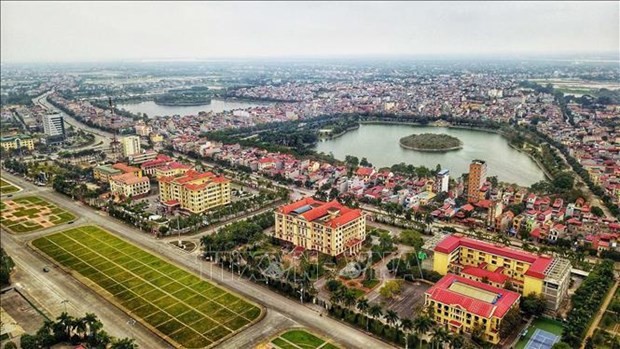
New-style rural development programme gives facelift to Hung Yen countryside
Latest
 |
| Hung Yen has become a well-off province 23 years after re-establishment (Photo: VNA) |
The province is continuing with efforts to maintain and further improve the living conditions in rural areas.
Places worth of living
Many communes in Hung Yen now have good infrastructure with houses among trees and flower-lined concrete roads. One example is Yen Phu commune, Yen My district, which is among 19 communes recognised to have fulfilled criteria for model rural areas in the province.
Hung Yen is a story of success in mobilising resources in society for building new-style rural areas. Each year, the province raises from 5-7 trillion VND (213-298 million USD at current exchange rate) for the work, mostly from contributions of enterprises and residents.
Among categories for new-style rural areas, the building of rural roads received the most enthusiastic response from local communities. In 2022, residents in Yen My district donated nearly 80 billion VND (3.41 million USD) to build rural infrastructure facilities.
In Phu Cu district, local residents contributed more than 500 million VND, over 2,500 sq.m of housing land and thousands of working days, and dismantled over 2,500 sq.m of walls and 165 trees for the construction of rural roads. Thanks to this, the district built over 51km of roads in 2022. Some households even donated hundreds of sq.m of land to serve the building of roads.
According to Director of the province’s Department of Agriculture and Rural Development Do Minh, after more than 12 years implementing the national target programme on building new-style rural areas, the province has upgraded and built 2,500km of rural roads and nearly 700 cultural centres in hamlets.
The annual income of rural residents has also increased from 29 milion VND per person in 2011 to 65 million VND in 2022.
Striving towards advanced, model rural areas
Iin 2022, Hung Yen had 22 communes recognised as meeting all criteria for advanced new-style rural areas, while 13 communes and 23 villages were recognised as model new-style rural areas.
This year, the province has set a target of having 25 – 30 more communes achieve advanced criteria, 10 – 15 more communes and 15 – 20 residential areas achieve criteria for model rural areas. It also aims to have one district meet advanced criteria in the 2021-2025 period.
Under Hung Yen’s plan, by 2025, 100% communes should fulfil criteria for advanced new-style rural areas, half of the communes and 185 residential areas become model rural areas, and at least three district-level administrative units meet advanced criteria.
Towards those goals, the province will push ahead with restructuring of agriculture in combination with new-style rural area building and effectively implement the scheme on holding auctions of land use rights to secure capital for rural development.
Priority in investment will be given to agricultural development and infrastructure construction, while attention will be paid to the implementation of social security policies to reduce poverty sustainably.
Nguyen Hung Nam, Vice Chairman of the provincial People’s Committee, said the provincial administration has instructed sectors and local authorities to continue mobilise resources for the programme. When allocating funding, priority should be given to projects that can create impetus for local socio-economic development and meet local residents’ urgent needs.

















